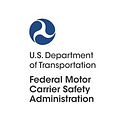Commercial motor vehicle (CMV) drivers are on the front lines in the fight against human trafficking.
The Federal Motor Carrier Safety Administration (FMSCA) encourages drivers to keep an eye out for signs of this crime while on the job, since human traffickers often use bus stations, truck stops, rest areas, and travel centers to recruit and move victims.
Every year since 2010, The President of the United States has designated January as National Human Trafficking Prevention Month. Since that time, the month has become a time to raise awareness about how we all can prevent this crime by learning how to identify and report human trafficking.
This year, we are shining a light on labor trafficking ─ a type of human trafficking in which someone is made to work through the use of force, fraud, or coercion.
Many people primarily think of sex trafficking as the driving force behind the victimization of an estimated tens of thousands of people in the United States each year. But research indicates that one in 10 victims of human trafficking in 2021 were subjected to labor trafficking. The International Labor Organization estimates that $51 billion is generated in illegal profits from forced economic exploitation in domestic work, agriculture and other economic activities.
Potential labor trafficking signs you can watch out for include:
· A vehicle dropping off or picking up individuals at other vehicles or trucks.
· Chatter about a “commercial company” or “sale” on CB radio.
· Worker seems to be deferring to another person before giving information, avoids eye contact, being told not to speak, or appearing coached on what to say.
· Worker is not free to leave premises.
· Worker lives at the business.
· Worker is transported to the location by the owner or manager and all workers arrive and leave at the same time.
· Worker has excessively long and/or unusual hours or is always available on demand.
· A person exhibiting signs of physical or emotional distress, abuse, or branding tattoos.
Just because one of these signs is present does not necessarily mean an individual is being trafficked, so use your discretion and trust your gut when reporting an instance of human trafficking.
As part of FMCSA’s commitment to the National Action Plan to Combat Human Trafficking and the passing of the “No Human Trafficking on Our Roads Act,” the agency issued a new rule that requires every state to permanently ban drivers convicted of human trafficking from operating a commercial motor vehicle for which a commercial driver’s license or a commercial learner’s permit is required. All 50 states were required to come into compliance with the final rule as of the statutory deadline of September 23, 2022.
The USDOT is part of the President’s Interagency Task Force to Monitor and Combat Trafficking in Persons, and it has committed to partnering with federal, state, and local agencies and transportation industry leaders across the country to train stakeholders, develop educational tools, disseminate public awareness materials, and fund anti-trafficking initiatives in the transportation industry.
The USDOT also convenes an Advisory Committee on Human Trafficking (ACHT), which was established in 2018 and was re-chartered last year under the Bipartisan Infrastructure Law (BIL). The ACHT submits a triennial counter-trafficking report with recommendations for countering human trafficking, an assessment of best practices by transportation stakeholders, and human trafficking violations involving CMVs.
If you suspect someone is being trafficked, do not confront the suspected trafficker or victim. Instead, FMSCA asks you to:
· Dial 911 if someone is in immediate danger.
· Call the toll-free, 24/7 National Human Trafficking Hotline at 1–888–373–7888 or text “help” or “info” to 233722.
Download FMCSA’s visor card to learn more about other human trafficking indicators when you’re on the road. Remember, victims of these crimes can be U.S. citizens or non-citizens, and can be any gender, race, ethnicity, or age.
